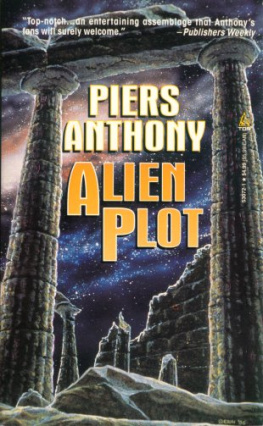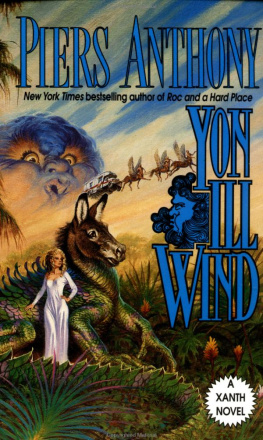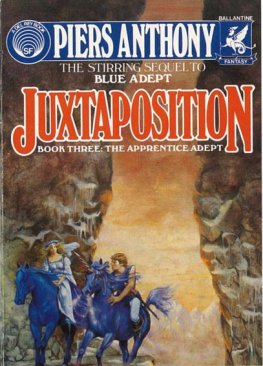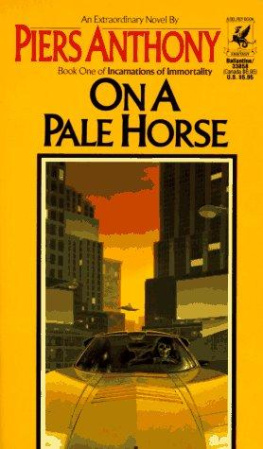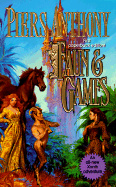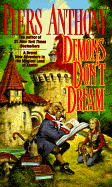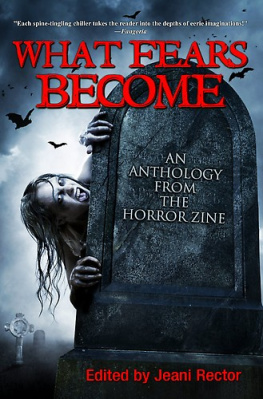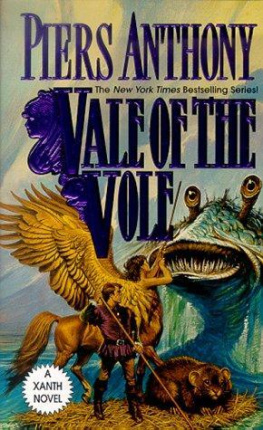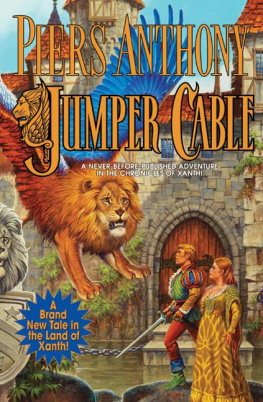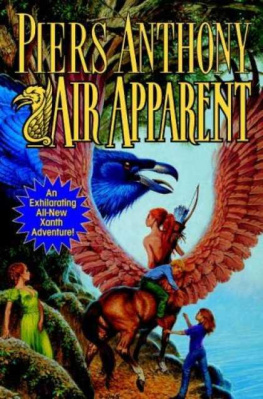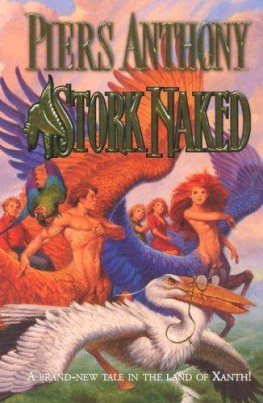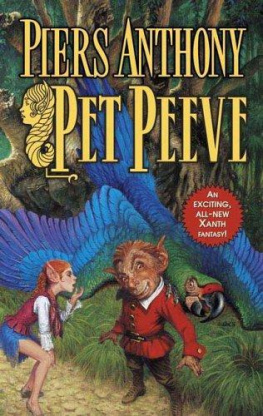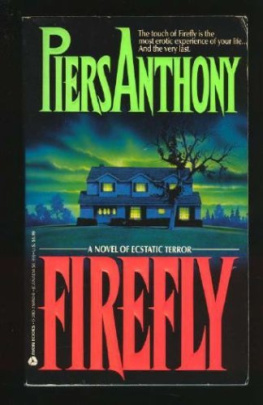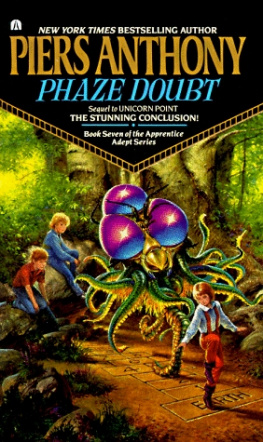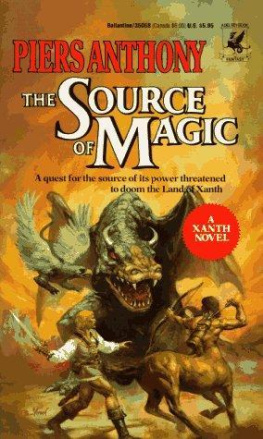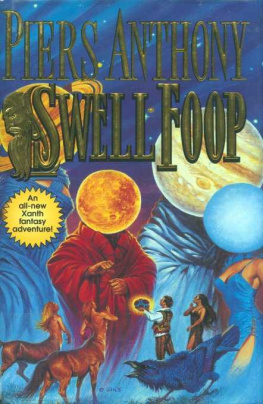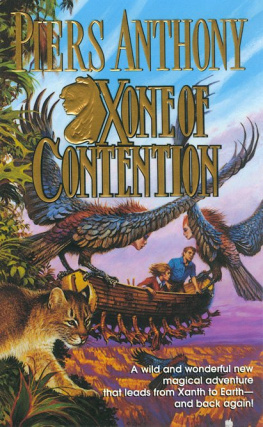Piers Anthony
Alien Plot
The author wishes to thank Alan Riggs for developing this volume.
CONTENTS
Faces
The plant labors all the year, green and growing and undistinguished. At last, in its season, it blooms, and all the folk remark on the beauty of the flower. Yet that bloom is only the product of the plant. It is wrong to see the flower as the only important thing, for it is the plant that makes ityet it is the aspect of the plant designed to receive attention, and should be judged as such.
Similarly the writer labors to produce his narrative, and if it is wrong to treat that narrative as if it had no genesis, still it is the aspect the writer chooses to be represented by. Judge the writer by his narrative rather than his picturebut do not scorn the picture any more than the green foliage of the plant, for these may be alternative avenues to comprehension of the whole.
Alien Plot
I need to make a distinction: The title of this story refers to a plot of ground, while the title of this collection refers to a dastardly conspiracy. It is the conspiracy by editors to frustrate writers, and a number of the entries in this volume will harp on that theme. This present novelette is the major piece of the volume, and the major example.
It started in Mayhem 1990, when I received a solicitation from an editor to contribute a story to a volume titled After the King: Stories in Honor of J.R.R. Tolkien, to be published in mid-1992, the 100th anniversary of Professor Tolkien's birth. The guidelines were simple: stories that were true to the spirit of Tolkien's great accomplishments, or stories that his work made possible. "Please note," the letter said, "that you cannot use Professor Tolkien's characters and settings..."
Well, that seemed simple enough. Tolkien made possible the entire modern fantasy genre; virtually all current fantasy fits under that broad umbrella. As for the spirit of his accomplishments, let me make this plain: I was a Tolkien fan from the 1940's when I read The Hobbit, which I considered to be the greatest fantasy adventure ever. I see few influences by others on my manner of writing, but surely Tolkien had a significant effect. I didn't like THE LORD OF THE RINGS as well, finding it too long and diffuse, but it was still great fantasy. It would be hard for me to avoid the spirit of Tolkien in my own fantasy.
But I was jammed for time, because I was answering an average of 150 letters a month that year and had contracts for half a dozen novels. I couldn't just dash off a token entry; to do justice to the spirit of Tolkien I would have to make a significant effort. That was apt to put me behind schedule on my existing projects. So I wrote back, demurring because of the press of business. But the editor insisted, saying that he really had to have me in that volume. So, reluctantly, I agreed. I finished the novel I was then in, the 108,000-word MerCycle, and delayed the next, the 141,000-word Fractal Mode, so as to make space for the 16,000-word "Alien Plot."
I was not allowed to use any Tolkien setting or character, but was supposed to be true to the spirit of his fantasy. I pondered, and decided to go whole hog: I made a setting and characters that were nothing at all like his, but a spirit that was exactly his: that of an ordinary man getting gradually into something quite alien to the contemporary world, and finding fulfillment there. The original hobbit really wasn't looking for adventure; he was a quiet homebody. But before he was through, he had had the greatest adventure of them all. So I started with an ordinary, undistinguished contemporary man, who longed for the realms of fantasy, but never expected to experience them. Then, by an unexpected and strange route, he found himself in just such a realm, and managed to acquit himself honorably by its odd rules. Just as the original hobbit did. The person was unprepossessing, but underneath he had character that was to be respected. The spirit, the essence, without the form, just as the editor required.
I completed the story and shipped it off. The editor sent a brief scrawled acknowledgment, and didn't mention the matter again. But I saw a note on the volume in a newsletter which listed Anthony as among the contributors, so I figured that was set.
I heard from my agent: Another editor was offering me more than ten times as much for the story. Now this was surprising in more than one respect. First, I hadn't used the agent on this story; I had dealt directly with the editor. The agent was handling my novels, but stories were really not worth his while. Second, the amount: I was being offered more than I got from some novels. What prompted such interest, which I hadn't solicited? It was a resounding endorsement of the story, but an odd proceeding.
I pondered, but concluded that it would not be right to pull my entry from the Tolkien memorial edition for which it had been written. My sympathy for editors is small, as this collection will document abundantly; I try not to miss an opportunity to make a snide remark about editors. But I try to hold myself to a higher standard than that practiced by editors, and to honor all commitments I make, whether express or implied. Though I had not yet received the contract for the story, so was not legally bound, I was ethically bound. So, with regret, I turned down the far richer sale.
Time passed. When, a year after sending in the story, I still had not received a contract for it, I realized that there had been a slipup somewhere. So I queried the editor, gently: Wasn't it time for a report on my story?
He didn't answer. Instead I heard from the other editor: "Alien Plot" had been rejected. The first editor hadn't bothered to inform me. I had never received notice, and I never got my manuscript back, but it seemed he had decided that my story wasn't right for the volume. Maybe I should have ignored the editorial instructions and done a clone of Tolkien, as I readily could have. That was, it seemed, why the second editor had felt free to make the richer offer. I had turned it down in favor of a sale I never had.
I mentioned editorial ethics. Well...
In this manner this story came to join my collection of rejects, so was available for this volume. I submit it as Exhibit A in my case against editors, who can treat seasoned pros as shabbily as hopeful unsold writers.
I do believe in my story. There are things here that I subscribe to, such as protection of the environment and a longing for a better world. It is an editor's right to reject what doesn't suit his taste. But it is a writer's right to make his own case. Here is mine.
It was a desolate region. What pollution hadn't stunted, the drought had wilted. Duff turned his eyes away from the dreary scene and snoozed as the taxi carried him on.
He imagined a melange of the great realms of fantasy, where magic worked and fantastic creatures roamed and swords were the state of the art in weaponry. Where wizards cast horrendous spells, and maidens were not only beautiful but innocent. He had used fantasy settings in role-playing games, and had tried many fantasy computer games, but none of them were quite enough. Mostly he just read and reread the wonderful adventures; they were his main escape from dullness.
For Duff had long since resigned himself to the fact that though he had the aspirations of an adventurer, he had the body and mind of a nonentity. He wasn't handsome or brilliant; about all he could claim was decency, and decency didn't carry much weight in the military life. Or the civilian life, he knew. So he longed for the realms where magic could supply what he lacked.
Soon he achieved his desire: He dreamed he was in such a land. He didn't have a quest; he was just walking through a world he knew was magic. He was sure that if he walked far enough, he would encounter both dragons and sweet maidens. He didn't even want to hurt the dragons; he just wanted to be in the same world with them. For in such a place, he would have some kind of magic ability that would make him a person of note. Not of great reputation, just someone to be respected for himself, that one woman would find intriguing.

